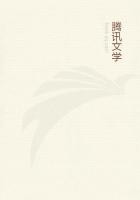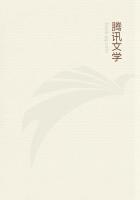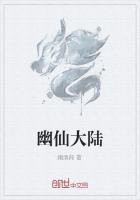'It is you who are in error,'returned the Archdeacon with dignity;'Ddalus is the foundation;Orpheus is the wall;Hermes is the edifice—the whole structure.Come whenever it please you,'he continued,turning to Tourangeau.'I will show you the particles of gold left in the bottom of Nicolas Flamel's crucible which you can compare with the gold of Guillaume de Paris.I will instruct you in the secret virtues of the Greek word peristera.But before all things,you shall read,one after another,the letters of the marble alphabet,the pages of the granite book.We will go from the doorway of Bishop Guillaume and of Saint-Jean le Rond to the Sainte-Chapelle,then to the house of Nicolas Flamel in the Rue Marivault,to his tomb in the cemetery of the Holy Innocents,to his two hospices in the Rue de Montmorency.You shall read the hieroglyphics with which the four great iron bars in the porch of the Hospice of Saint-Gervais are covered.Together we will spell out the f des of Saint-Cme,of Sainte-Geneviève-des-Ardents,Saint-Martin,Saint-Jacques-de-la-Boucherie—'For some time past,Tourangeau,with all his intelligence,appeared unable to follow Dom Claude.He broke in now:
'Pasque Dieu!but what are these books of yours?'
'Here is one,'replied the Archdeacon;and opening the window of his cell,he pointed to the mighty Cathedral of Notre-Dame,the black silhouette of its two towers,its stone sides,and its huge roof sharply outlined against the starry sky,and looking like an enormous two-headed sphinx crouching in the midst of the city.
For some moments the Archdeacon contemplated the gigantic edifice in silence;then,sighing deeply,he pointed with his right hand to the printed book lying open on his table,and with his left to Notre-Dame,and casting a mournful glance from the book to the church:
'Alas!'he said.'This will destroy that.'
Coictier,who had bent eagerly over the book,could not repress an exclamation of disappointment.'Hé!but what is there so alarming in this?Glossa in Epistolas Pauli.Norimberg?,Antonius Koburger 1474.That is not new.It is a book of Petrus Lombardus,the Magister Sententiarum.Do you mean because it is printed?'
'You have said it,'returned Claude,who stood apparently absorbed in profound meditation,with his finger on the folio which had issued from the famous printing-press of Nuremberg.Presently he uttered these dark words:'Woe!woe!the small brings down the great;a tooth triumphs over a whole mass!The Nile rat destroys the crocodile,the sword-fish destroys the whale,the book will destroy the edifice!'
The curfew of the cloister rang at this moment as Doctor Jacques whispered to his companion his everlasting refrain of'He is mad!'To which the companion replied this time,'I believe he is.'
It was the hour after which no stranger might remain in the cloister.The two visitors prepared to retire.
'M re,'said Compère Tourangeau,as he took leave of the Archdeacon,'I have a great regard for scholars and great spirits,and I hold you in peculiar esteem.Come tomorrow to the Palais des Tournelles,and ask for the Abbot of Saint-Martin of Tours.'
The Archdeacon returned to his cell dumfounded,comprehending at last who the personage calling himself Compère Tourangeau really was:for he called to mind this passage in the Charter of Saint-Martin of Tours:Abbas,beati Martini,scilicet Rex Franci?,est canonicus de consuetudine et habet parvam p endam quam habet sanctus Venantius,et debet sedere in sede thesaurii.4
It is asserted that from that time onward the Archdeacon conferred frequently with Louis XI,whenever his Majesty came to Paris,and that the King's regard for Dom Claude put Olivier le Daim and Jacques Coictier quite in the shade,the latter of whom,as was his custom,rated the King soundly in consequence.
1 Of Predestination and Free-Will.
2 Goodman,gossip.
3 Writing from right to left and back again from left to right without breaking off the lines.
4 The Abbot of Saint-Martin,that is to say the King of France,is canon,according to custom,and has the small benefice which Saint-Venantis had,and shall sit in the seat of the treasurer.
Chapter 2-This Will Destroy That
Our fair readers must forgive us if we halt a moment here and endeavour to unearth the idea hidden under the Archdeacon's enigmatical words:
'This will destroy That.The Book will destroy the Edifice.'
To our mind,this thought has two aspects.In the first place it was a view pertaining to the priest—it was the terror of the ecclesiastic before a new force—printing.It was the servant of the dim sanctuary scared and dazzled by the light that streamed from Gutenberg's press.It was the pulpit and the manu,the spoken and the written word quailing before the printed word—something of the stupefaction of the sparrow at beholding the Heavenly Host spread their six million wings.It was the cry of the prophet who already hears the far-off roar and tumult of emancipated humanity;who,gazing into the future,sees intelligence sapping the foundations of faith,opinion dethroning belief,the world shaking off the yoke of Rome;the prognostication of the philosopher who sees human thought volatilized by the press,evaporating out of the theocratic receiver;the terror of the besieged soldier gazing at the steel battering-ram and saying to himself,'The citadel must fall.'It signified that one great power was to supplant another great power.It meant,The Printing-Press will destroy the Church.

